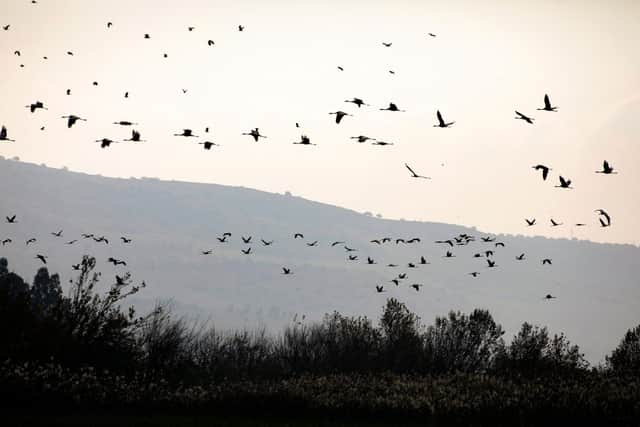What is bird flu? Can it be caught by humans? Have cases been found in the UK? What are the symptoms?
and live on Freeview channel 276
The UK Health Security Agency (UKHSA) said that one person in the south west had the virus.
The risk to the wider public continues to be very low, the UKHSA said, but urged people not touch sick or dead birds.
But what is bird flu and what do you need to know?


Here’s everything you need to know:
What is bird flu?
Also known as avian influenza, it is a variety of influenza
Advertisement
Hide AdAdvertisement
Hide AdThe strain known as avian influenza H5N1 has been identified among birds in the UK recently.
A total of 64 cases have been found in birds in England.
according to the Department for Environment, Food and Rural Affairs (Defra), with new cases being confirmed on a daily basis.
There are also a number of cases in Wales, Scotland and Northern Ireland.
What happens if a case of bird flu is detected?
The whole of the UK is covered by avian influenza prevention zones, which require bird keepers to take measures to try and stop the disease’s spread, such as housing or netting all poultry and captive birds to keep them separate from wild birds, and disinfecting clothing and equipment.
Can bird flu pass to humans?
Advertisement
Hide AdAdvertisement
Hide AdSome strains of bird flu can pass from birds to people, but this is extremely rare, according to the UKHSA.
It usually requires close contact with an infected bird, so the risk to humans is generally considered very low.
Human-to-human transmission of bird flu is also very rare, the organisation said.
Advertisement
Hide AdAdvertisement
Hide AdThe case was detected after the Animal and Plant health Agency (APHA) identified an outbreak of the H5N1 strain of bird flu in a flock of birds.
The infected birds have all been culled.
As a precaution, the UKHSA swabbed the person involved and detected low levels of flu.
Further lab analysis showed that the virus was the ‘H5’ type found in birds.
What are the symptoms of bird flu?
According to the NHS website, the symptoms of bird flu are as follows:
- a very high temperature or feeling hot or shivery
- aching muscles
- headache
- a cough or shortness of breath
Other early symptoms may include:
- diarrhoea
- sickness
- stomach pain
- chest pain
- bleeding from the nose and gums
- conjunctivitis
Advertisement
Hide AdAdvertisement
Hide AdIt usually takes 3 to 5 days for the first symptoms to appear after you've been infected.
What strains of bird flu are in the UK?
On the NHS website it says: ‘There are lots of different strains of bird flu virus. Most of them don't infect humans. But there are 4 strains that have caused concern in recent years:
- H5N1 (since 1997)
- H7N9 (since 2013)
- H5N6 (since 2014)
- H5N8 (since 2016)
‘Although H5N1, H7N9 and H5N6 don't infect people easily and aren't usually spread from human to human, several people have been infected around the world, leading to a number of deaths.’
A message from the Editor, Mark Waldron
Subscribe here for unlimited access to all our coverage, including Pompey, for just 26p a day.
Comment Guidelines
National World encourages reader discussion on our stories. User feedback, insights and back-and-forth exchanges add a rich layer of context to reporting. Please review our Community Guidelines before commenting.
